Born in Montreal, Carol McQueen studied at Concordia University before going to Oxford to read for an MPhil and then a DPhil in international relations, focusing on the use of safety zones to protect civilians in 1990s armed conflicts in Bosnia, Iraq and Rwanda. She began her career as political affairs officer with the UN Peacekeeping Mission in the Democratic Republic of Congo and went on to hold posts at the Department of Foreign Affairs, Trade, and Development in Canada, including serving as deputy director of the Democracy Unit and policy analyst with the Peacebuilding and Conflict Prevention Group. Carol then served as Political Counsellor at the Canadian High Commission in Dar es Salaam, Tanzania. From 2015 to 2019, she was Canada’s Ambassador to Tunisia; and from 2019 to 2021, she was Canada’s Ambassador to Burkina Faso and Benin. She is currently Canada’s Immigration Department’s Director General for Settlement & Integration Policy. McQueen is the author of Humanitarian Intervention and Safety Zones: Iraq, Bosnia and Rwanda. This narrative is excerpted from an interview with the Rhodes Trust on 23 March 2025.
Carol McQueen
Québec & Balliol 1995
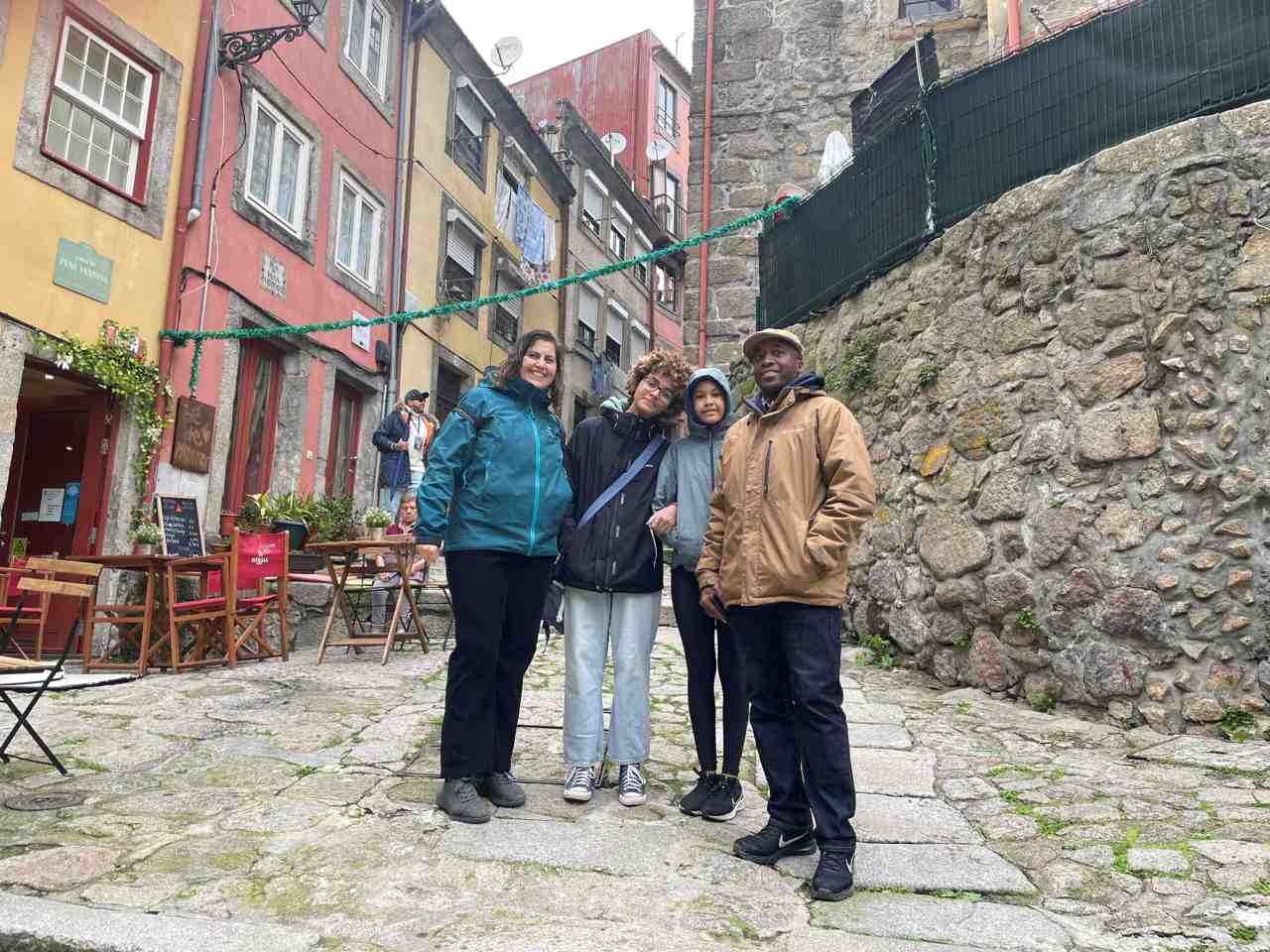
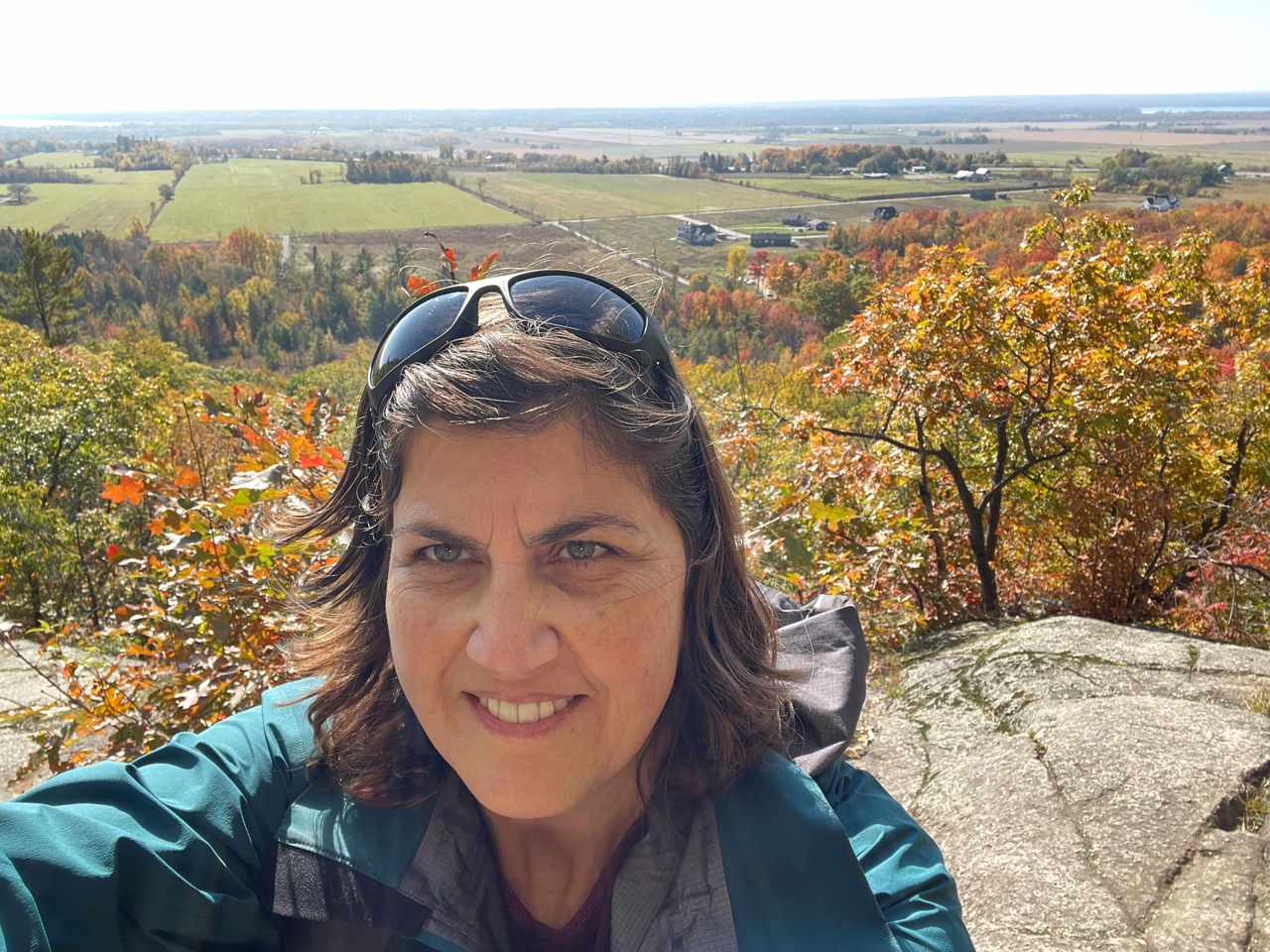
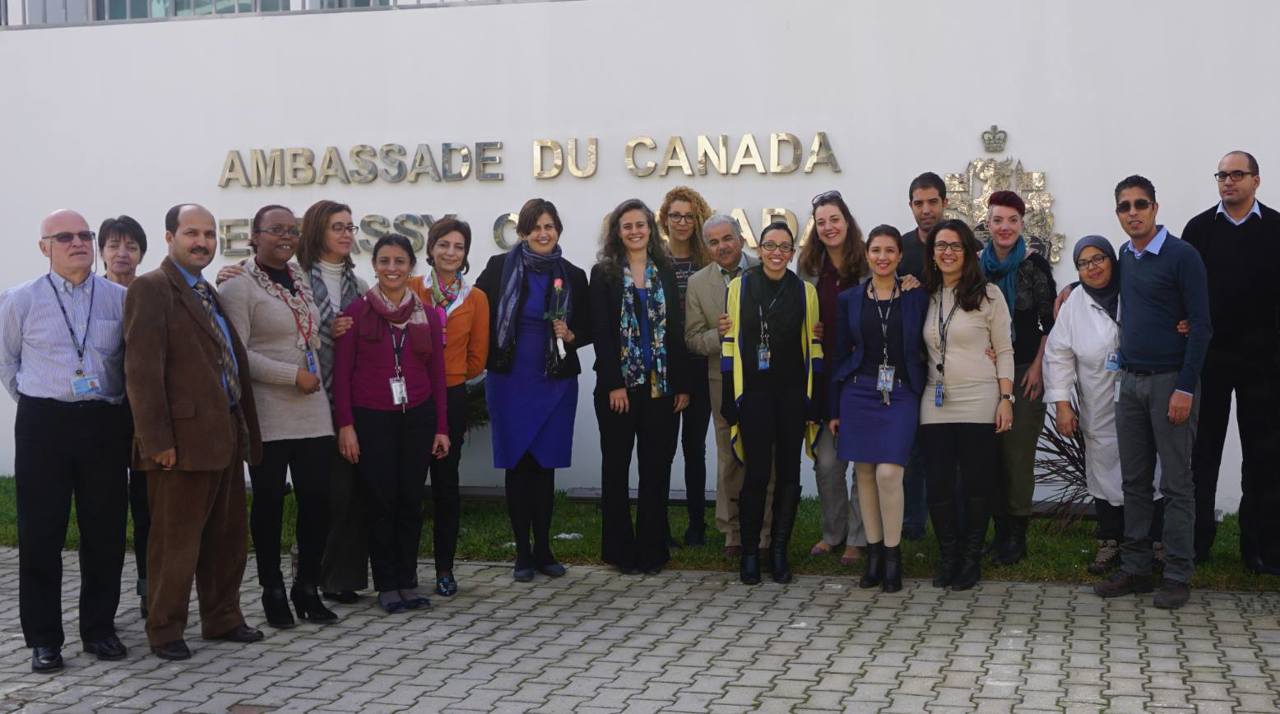
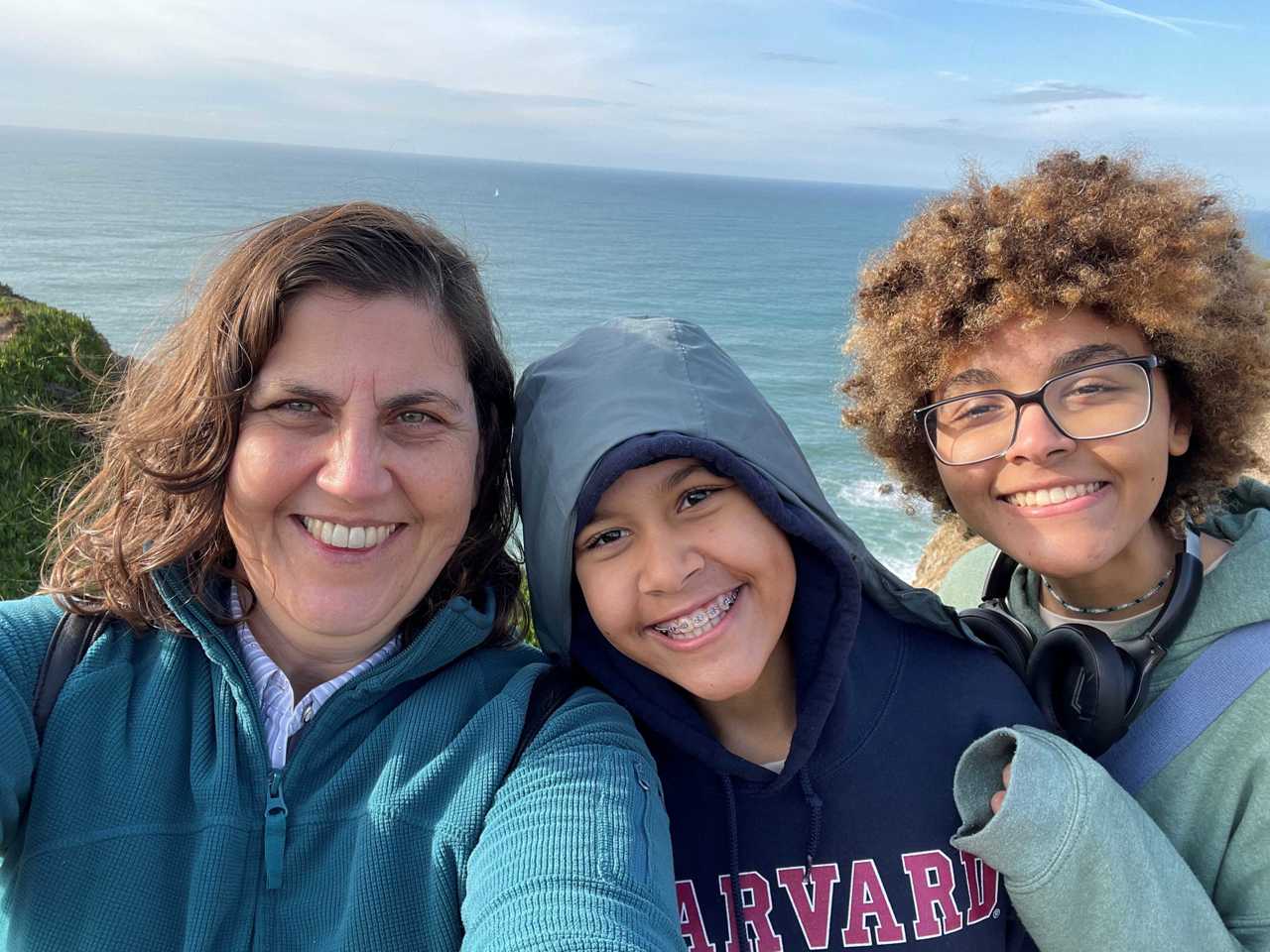
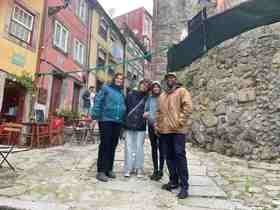

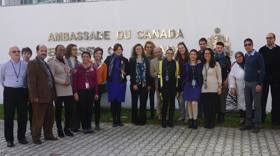
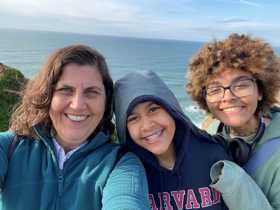
‘I think it’s a really exciting thing when you get to live in more than one culture’
My parents were immigrants to Canada. My father had come from Scotland during the Second World War and my mom was American. So, we were anglophones living in a French province but my parents were very dedicated to the idea that their kids should integrate well, which meant we all attended French school. That was pretty tough for me because my parents didn’t speak French. I still remember the day when I finally understood French and was fully bilingual.
I think it’s a really exciting thing when you get to live in more than one culture and I remember that when I was a child things were starting to change in Canada. You had immigrants coming from all over the world and studying together. It really taught me the privilege of that but also the challenges that can come when you have different cultures together. It was a time when Québec was reasserting itself and protecting its French language and there was legislation that was brought in limiting some of the language rights of the Anglophone minority population. It made me aware of how important and complex human rights and minority rights are and how you have to be prepared to defend these things. Then, when I was about 18, I was selected to participate in a Canada World Youth exchange. I went and lived in Pakistan for three months and we were teamed up with Pakistani counterparts who then came to live in Canada for three months. That really gave me the travel bug.
On applying for the Rhodes Scholarship
I really loved Concordia. It’s known as the people’s university and it brings together your traditional 18- or 19-year-old student with people who are going back to school later in life, so it’s a very diverse group. I studied in liberal arts, specialising in history, and I met an incredible professor called Frank Chalk who taught a number of courses about the history of genocide. He was so inspirational and he really sparked my interest in international humanitarian law and this idea of, how do we prevent genocide? How is it that this keeps coming back? It’s one of the motivating forces that I had when I applied for the Rhodes Scholarship and it’s stayed with me all these years.
It was another professor at Concordia who asked me whether I had heard of the Rhodes Scholarship. I had to admit that I hadn’t but he said I should consider it because I had good grades and I was active in so many areas. To this day, I think it is probably the most complex application I’ve had to fill out, so it was all-consuming. But because I did it out of the blue, I didn’t at all expect to win and it was really surprising when I did. I remember telling my parents and they were just in shock and so happy. It’s not a day you forget!
‘It really opened your eyes to new things and to synergies’
Going to Oxford was pretty daunting. I remember packing a big trunk that was going to be sent by sea and then I just had my little suitcase. But I did meet the other Canadian Scholars and the American Scholars before we all flew over together and it was that kind of thing where you suddenly make fast friends with people. When we arrived, I went to the freshers’ fair and I must have signed up for at least 20 societies. There were so many opportunities. I joined a society where I did a lot of work on civil liberties and I also joined the hill-walking and rambling club. So, I would say I had a very rich life there.
The tutorial system was really alien to me and at the beginning it was intimidating, but it was also incredible to be one-on-one with your tutor or in a very small group. There was also the transition of coming to somewhere where I wasn’t automatically top of the class. I loved the way that you were allowed to go to lectures in any subject. It really opened your eyes to new things and to synergies, and I think that’s something unrivalled that Oxford permits. It was also a place where you could go and hear people like Kofi Annan and Bill Clinton (University & Arkansas 1968) speak. You were so close to people who had their hands on the levers of power and you could really see how an education of that calibre could propel you to make a difference in the world.
I was also lucky to have Adam Roberts at Balliol supervise my DPhil thesis. It was such an honour and a pleasure to work with him, and that was so important, because doing a DPhil is one of the hardest things I’ve ever done in my life. I worked on three case studies showing how states had collaborated internationally in humanitarian spaces to create safety zones. I was interested in how they got created, despite all the odds and unlikelihood that states would intervene to assist civilians targeted for ethnic cleansing and genocide, but also in how and why they failed.
‘You were on the front lines trying to make a difference’
After I had finished the DPhil, I managed to get a postdoc in Montreal. I thought that maybe I would become an academic, but then I realised I was more inclined to be actually practically in the world. I was so lucky, and it was Oxford and Adam Roberts that helped me. He had some connections at the UN and he very kindly put my name forward. Through that, I was able to join the UN peacekeeping mission in the Democratic Republic of Congo and that really launched my career. The transition from an academic life to going and living working in another country was something of a shock, but it was so exciting because you were on the front lines trying to make a difference. But it also taught me that conflicts are very complicated and protracted, and why they’re so difficult to resolve.
I left the UN because when I met my husband, who is Rwandan, we decided that we wanted to live in Canada. I joined a recruitment programme for policy leaders in the Canadian government and worked my way up from there at the Department of Foreign Affairs, eventually becoming a diplomat. In Tunisia, where I was actually Canada’s first woman ambassador to the country, it was amazing to see the power of the people and, particularly, the power of women to bring about change as they had during the Arab Spring movement a few years earlier. Tunisia had had the same problem that so many countries have where more and more power and money got concentrated in the capital while outlying and rural areas struggled. But it also showed me that democratic change takes time and is difficult, and the year after I left, there was a democratic election where the people basically elected a President who began dismantling some of the democratic gains. It brought home to me the challenge of democracy, especially in countries where some groups feel economically left behind, and I think we’re seeing in the US now what happens when people vote in the very conditions that could undermine their democratic system of government. All you can do is work with the best possible of intentions and do the best you can to resist democratic backsliding.
‘People have to start locally’
When I look back at my career and at my work on safety zones, it makes me so sad to see what is unfolding now, in Ukraine and in Gaza, for example, in terms of attacks against civilians. It means that all activists and NGOs will have to double their efforts to call out violations of international humanitarian law, and I certainly believe that governments aren’t adequately condemning what’s happening. One of the things I’ve come to think about more recently – and I think it’s also critical for preserving democracy – is that people have to start locally where they are. Start in your community and ask yourself what organisations exist, what protests you can join to make a difference and defend human rights.
For the last few years, I worked on resettlement and asylum in Canada, helping to bring people to the country who are fleeing war and persecution. It’s challenging but also so rewarding and exciting to work in that space. What keeps me going is the people I work with and the feeling that more than ever in these troubled times, everybody has some responsibility just to stand up and do whatever they can do to make the world a better, more just place.
